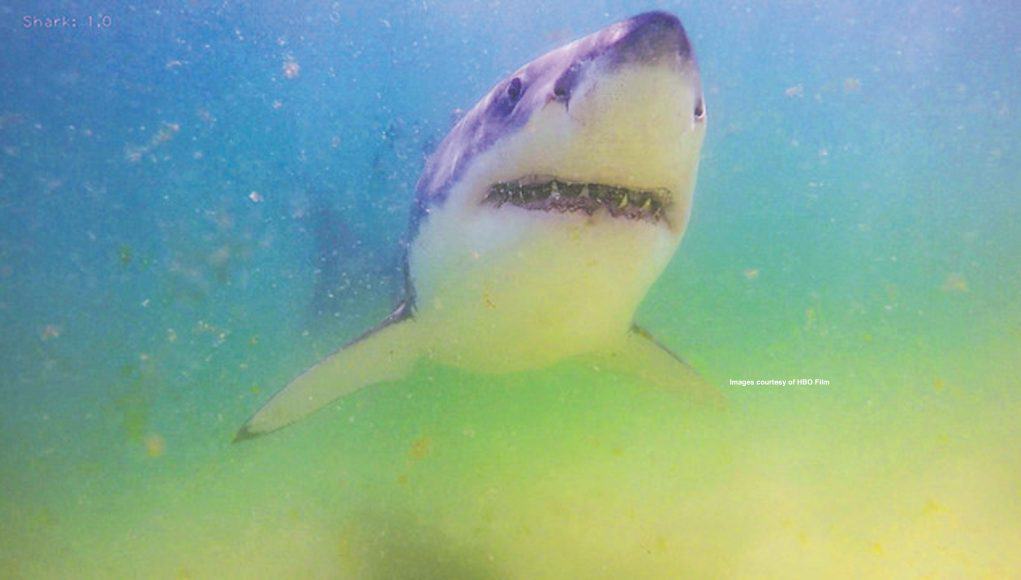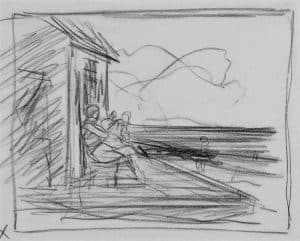by Rebecca M. Alvin
Humans have known since they first laid eyes on the ocean that it was a powerful kingdom that held many secrets. With potentially devastating forces that crash against the shore and our primal knowledge of a great unknown below its surface, the sea is like a watery jungle. One should not enter it lightly. And yet every year tourists flock to beach locales like Cape Cod to experience the multiple sensations the ocean offers. Whether here to swim or surf or fish or relax, the beach exudes a calming energy to those who visit it casually. But for those of us who live by the sea, the gentle lapping waves, smooth sand, and salty-sweet air only scratch the surface of what it is. The ocean is vast and powerful. It can be illuminating and stimulating as well as calming. But for many of us who live here year-round, there is a respect for the domain of the ocean—we know we don’t control it and that is either terrifying or exhilarating, depending on one’s point of view.
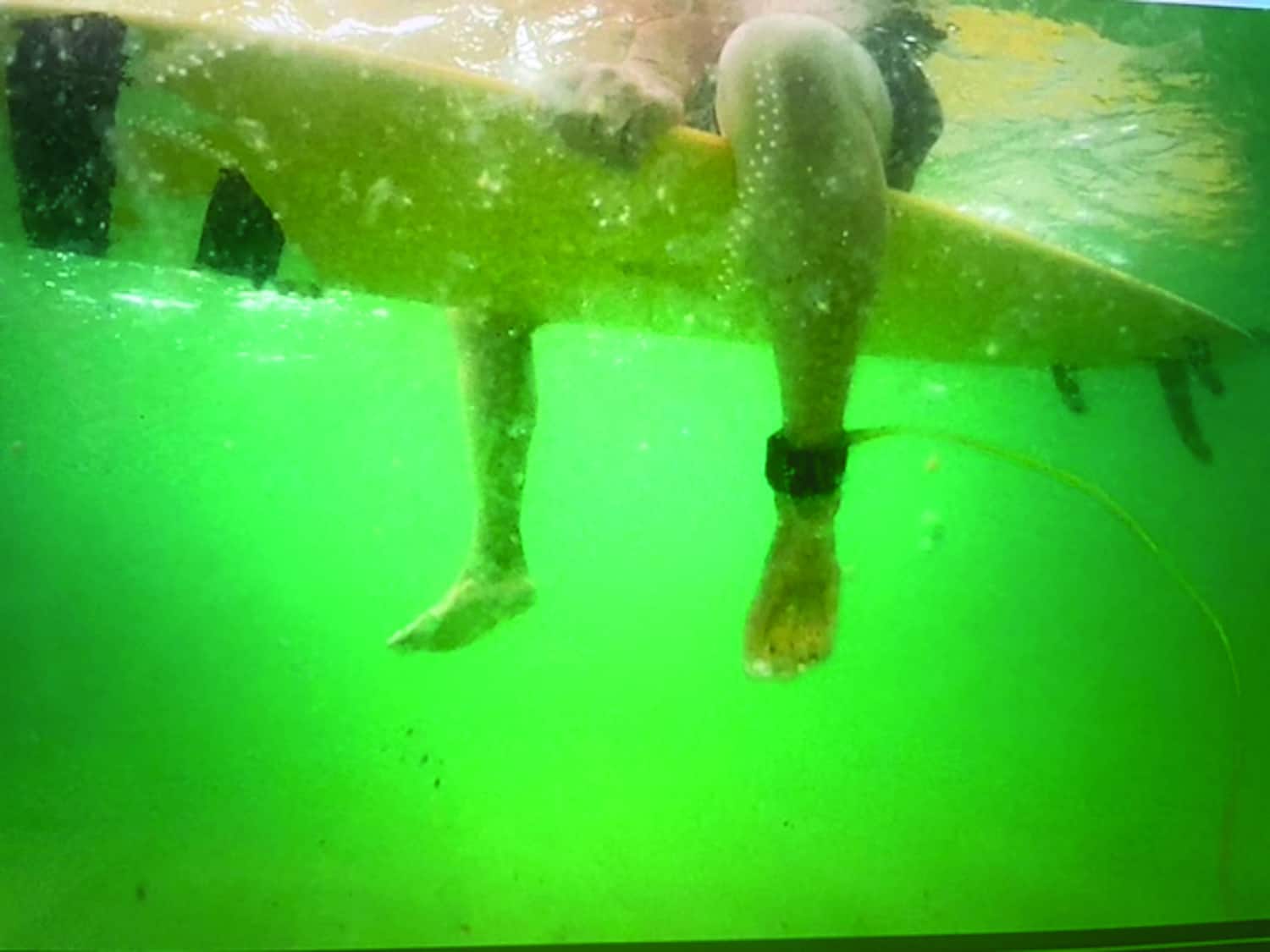
Ivy Meeropol’s new documentary After the Bite establishes just the right tone from beginning to end. Its subject is the emergence of the great white shark as a component of our ocean ecosystem over the past decade, and the impact its having on beachgoers, particularly in the wake of the tragic death of Arthur Medici, who died from a shark attack suffered at Newcomb Hollow Beach in Wellfleet on September 15, 2018. It’s difficult enough to maintain the right tone when talking about sharks; with the specter of Jaws movies looming in the collective consciousness, it is easy to fall into simplistic scare tactics. But the emotional impact Medici’s death had on our community out here is a delicate thing to handle with both sensitivity and accuracy. Those painful emotions many of us still feel nearly five years later, spurred action on the part of the Atlantic White Shark Conservancy, the Cape Cod National Seashore, the surfing community, the local fishing industry, tourists and locals alike, as well as political entities with various stakes in the issue, and Meeropol masterfully weaves all of these and more perspectives into After the Bite.
Meeropol, (with cinematographers Soren Nielsen and Stephen Maing and editor Seth Bomse), has crafted a film that builds beautifully, impressively adding more and more to our understanding of sharks, seals, the science of marine life, the passionate desire for public safety clashing with the sobering truth of man’s powerlessness against the destruction already waged against nature in the past, and the indifference of nature. As journalist Alec Wilkinson says in the film, with sharks, “we don’t find cooperation from the natural world in terms of our sense of ownership and use.” The ocean is not our playground and yet it is a wondrous aspect of life to be enjoyed, studied, yielded to.
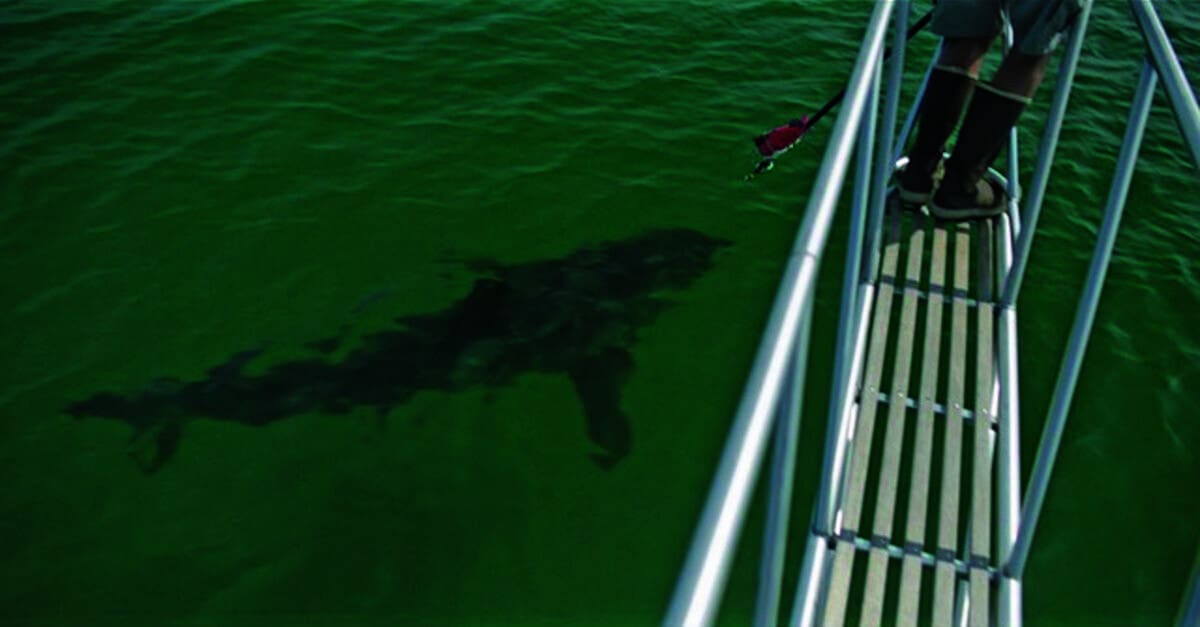
Meeropol never downplays the immense grief over Medici’s death and difficulty of a community having to rethink its assumptions about what we can and cannot do. She investigates the various factors and opinions of everyone from fishermen in Chatham who denounce anti-seal rhetoric in favor of a more nuanced look at changes in the commercial fishing industry to writers, scientists, and surfers all trying to find ways to work with the reality of our ecosystem, and politicians and recreational fishermen seeking to change federal marine mammal protection laws.
All of the cinematic tools are used here, from a scene late in the film where we are enchanted by the haunting vocalizations of seals in the outer harbor to images of small details other filmmaker’s may have ignored, like the look on a seal’s face after it’s been probed for virological purposes. The music by Morgan Visconti beautifully captures the melancholy of loss we all felt in 2018, the joy of scientific discovery, the urgency of activists coming at these issues from various angles. By the time we have an on-camera encounter with a shark, we already have an understanding of the depth of the issues at play and the complexity of human relationships with nature so that there is no sensationalism in watching it—the film does what documentaries should but often don’t do: it deepens our understanding, provokes to ask further questions, and uses creative means to envelope us in the world of the Outer Cape community as we grapple with issues both local and universal.
Encounters with ocean creatures can be profoundly moving, as we’ve seen in other films such as James Reed’s 2020 film about experiences with an octopus, My Octopus Teacher, and of course, they can also be deadly. It is that dichotomy that we can either embrace in acknowledgement of nature’s mysteriousness or avoid out of fear of those things that even in this day and age we cannot control. As Wellfleet local Dana Franchitto put it in After the Bite, “humankind must learn humility in the face of nature.”
After the Bite screens as part of the Provincetown International Film Festival only on Thursday, June 15, 4 p.m. at Provincetown Town Hall, 260 Commercial St. For tickets and information visit provincetownfilm.org/festival or go to the box office at 229 Commercial St. during the festival (June 14 – 18). The film will also be shown on HBO later this summer.
Documentaries on Outer Cape Life
The Outer Cape is a complex place. With Provincetown as its cultural hub, and Truro and Wellfleet their own unique towns, its a part of Cape Cod that is distinct from the other areas. The sensitive natural ecosystem—both on land and at sea, combined with an ever-changing cultural landscape full of artists and fiercely independent individuals of all stripes, there is a constant flow of creativity, philosophy, and sociopolitical engagement with the outside forces that are always looking to get in on the action here, without understanding why this is such a vital region in the first place. Every year, the Provincetown International Film Festival brings the world to our local screens, while also always making room for work of and about this place. In addition to After the Bite, these other documentaries delve into equally fascinating aspects of our Outer Cape culture and history. For showtimes, tickets, and information visit provincetownfilm.org or head over to the box office at 229 Commercial St. during the Festival, June 14 – 18.
Daughter of Rubens (dir: Sarah Hachey)
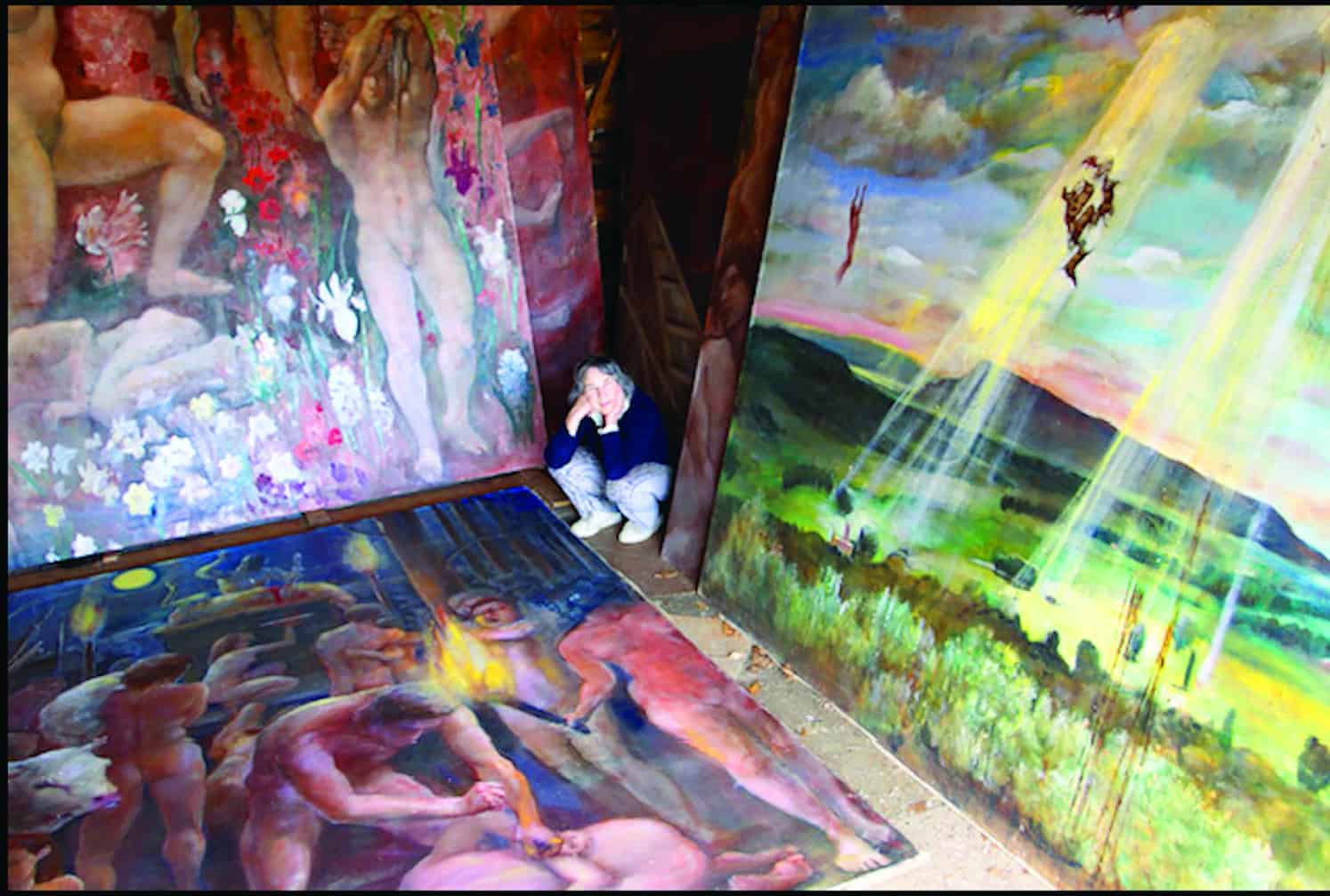
Artist Nancy Ellen Craig was renowned for her stunning figurative painting created on enormous canvases featuring Rubenesque female bodies, pagan symbolism, and a swirling energy. She made this work right here in a studio in Truro where she lived after abandoning a more traditional life to paint in the woods. This short film explores her lifeand work, the difficult choices she made, and the bohemian life she—and so many other wonderful artists who have lived out here at the end of the Cape.
Grass-Fed Capitalism (dir: Jay Critchley)
Local artist and organizer Jay Critchley annually brings folks together for the Re-Rooter’s Ceremony on the beach every January 7. In this short film, the tradition of beginning a new year by incinerating the symbols and artifacts of the previous year is beautifully documented.
I Am A Town (dir: Mischa Richter)
Filmmaker, artist, and gallery owner Mischa Richter has created a breathtaking meditation on Provincetown through the voices of individuals representing various facets of the unique blend of cultures and perspectives on life that have taken form here. Just as the title suggests, this film is a portrait of a town.
In the Whale (dir: David Abel)
Coexistence with whales has been a less contentious issue on the Cape, as opposed to shark encounters, but in 2021, the story of Michael Packard, a Provincetown lobster diver who found himself in the mouth of a humpback whale and lived to tell about it was reported all over the world, generating a new awareness of the mysterious ocean world. In Boston Globe writer David Abel’s new film, however, we learn more about Packard himself, a member of the well-known Packard family here in Provincetown, a local clan that has survived multiple tragedies and near-death experiences over the decades. What emerges from this documentary is both a retelling of the story and a contextualization of it as a story about the internal demons that can only be understood through our engagement with the natural world.
Painting Time and the Town (dir: Lise King)

This film offers insight into the creation of the mural on the side of Marine Specialties on Commercial Street, Time and the Town, painted by artist Esteban del Valle. The mural tells a story through fox figures standing in for humanity, revealing many of the observations del Valle has made about the past, present, and potential future of Provincetown, about the haves and have nots, and about the joys and struggles of living in this incredible place.

